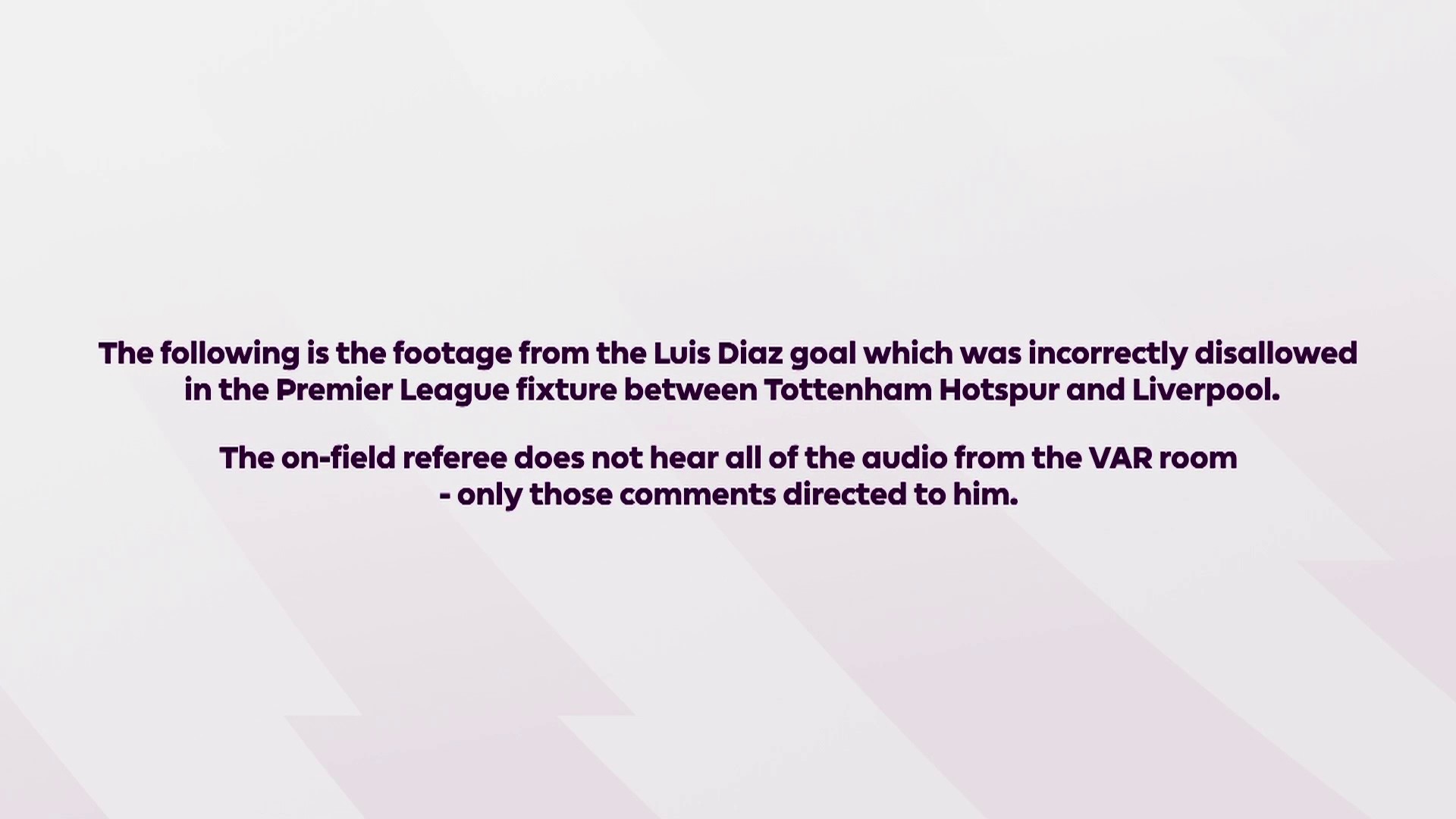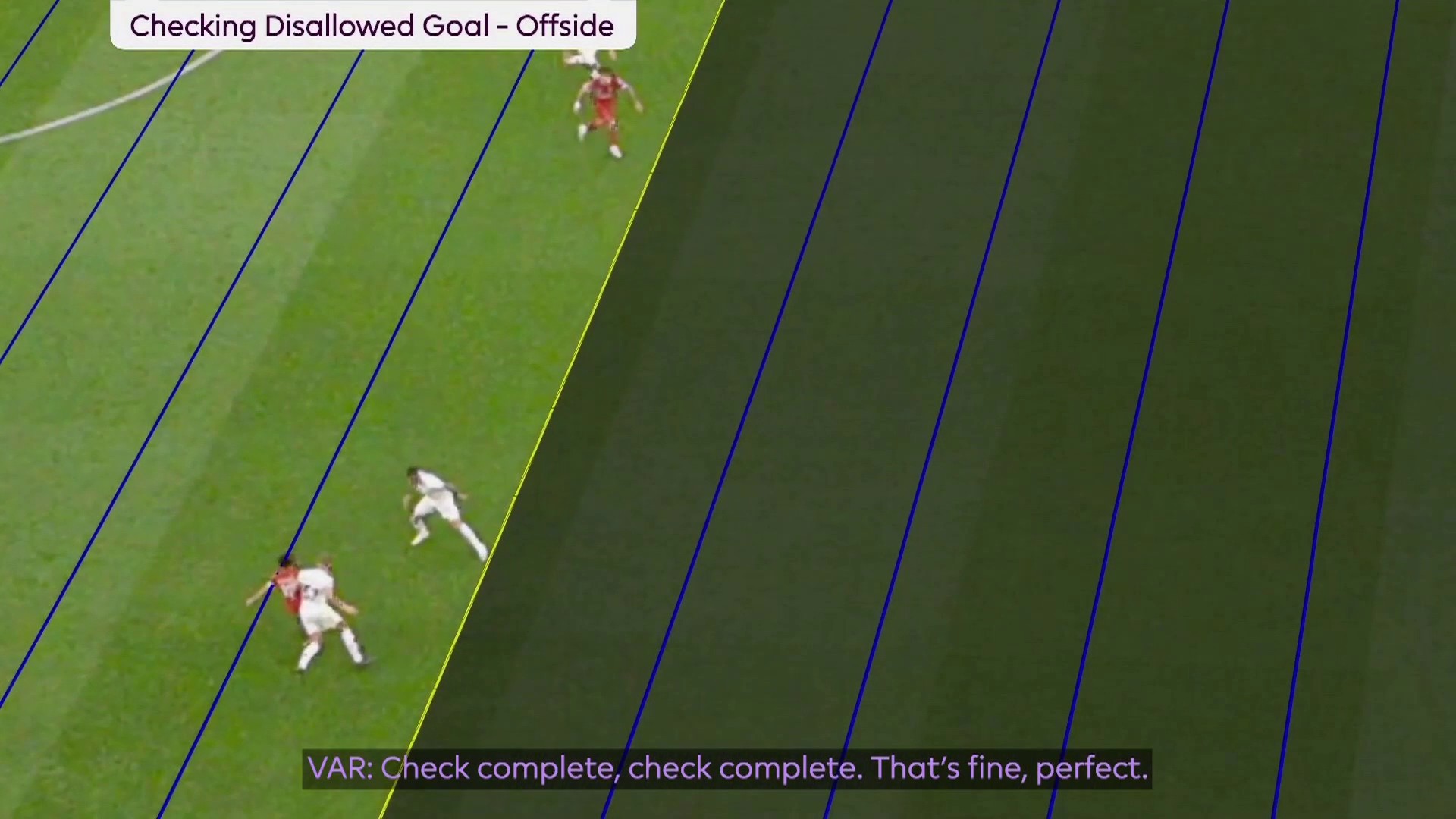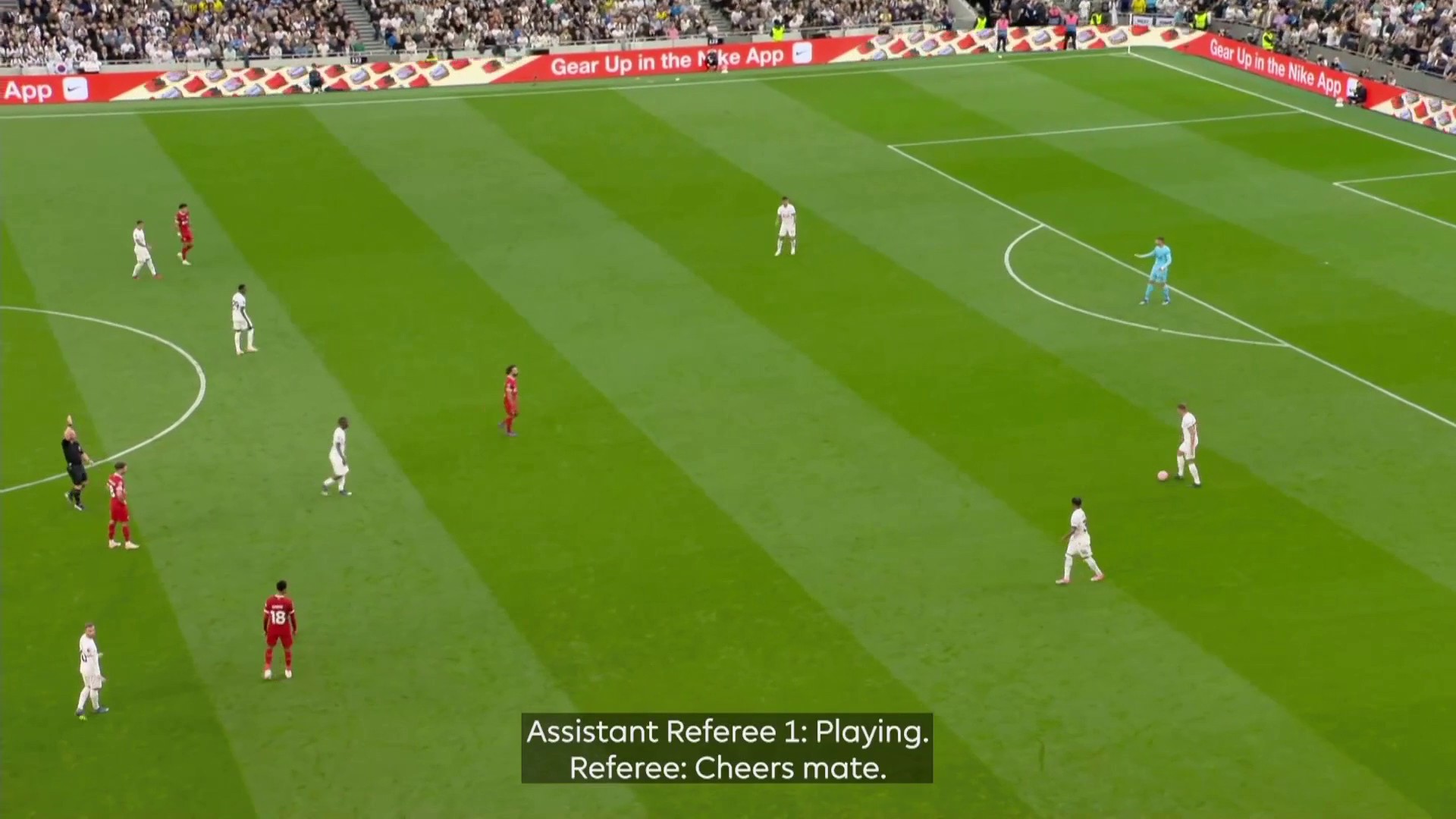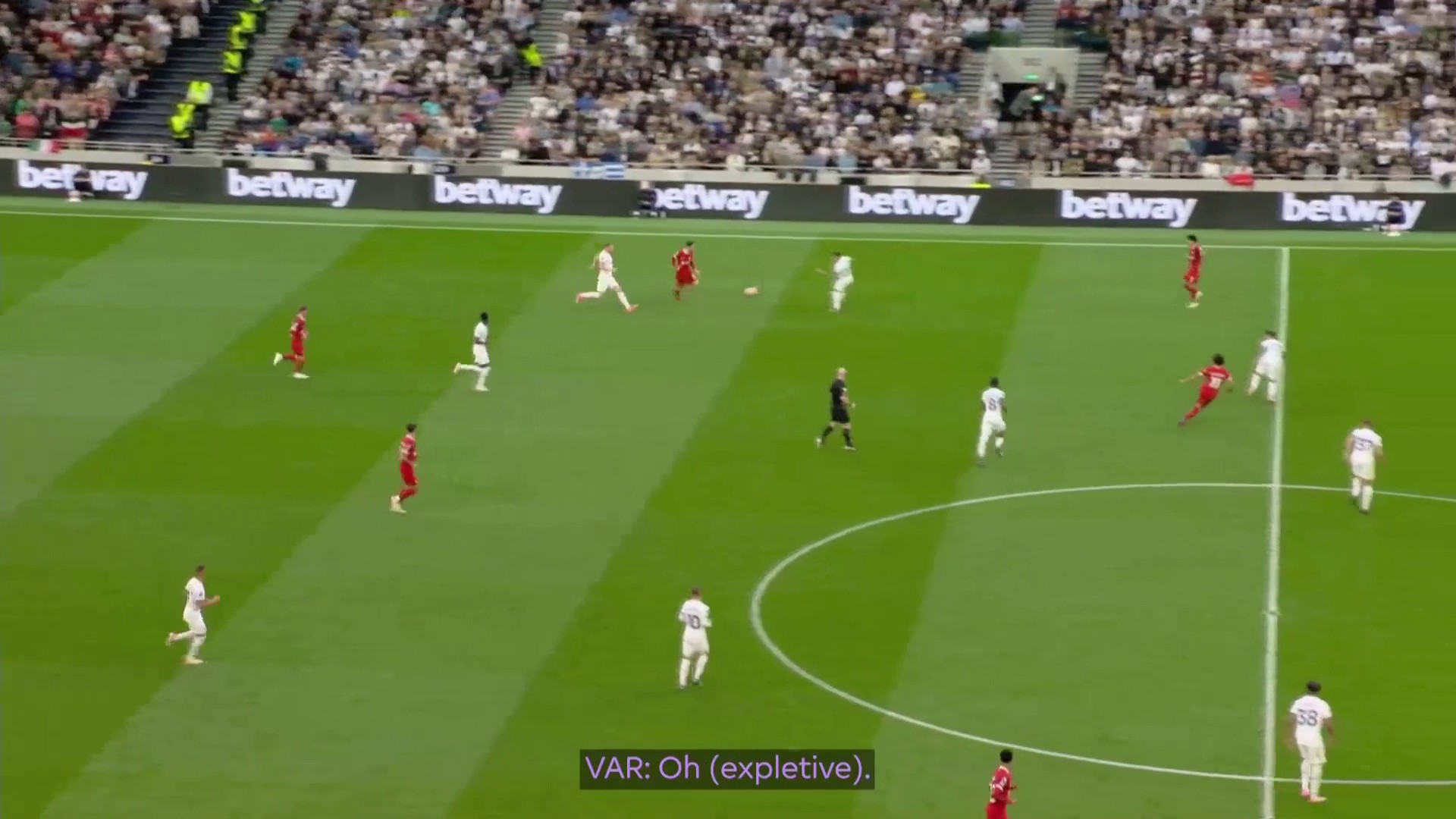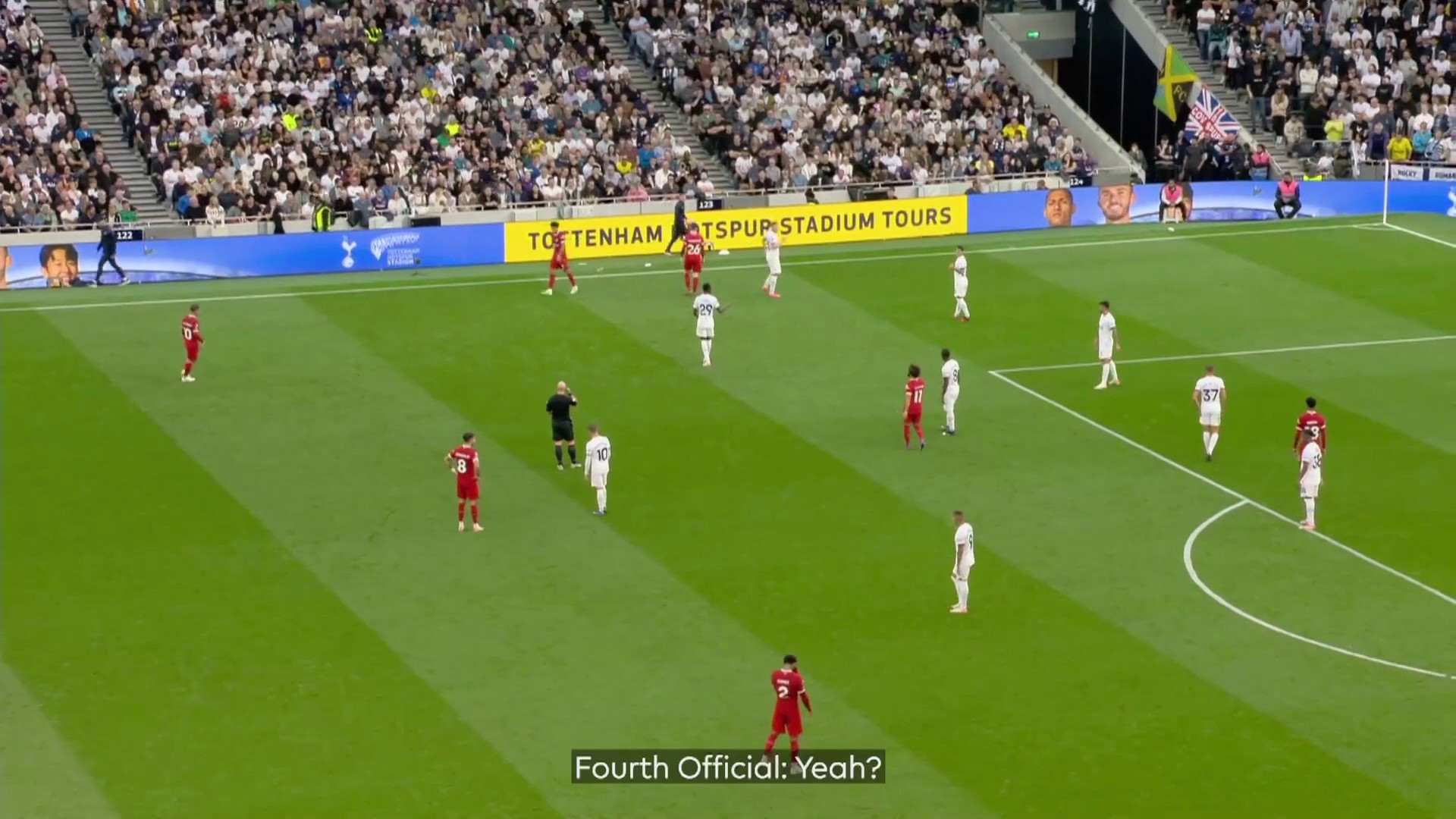
Unveiling Liverpool VAR Debacle: Unraveling Offside Controversy with Exclusive Forensic Analysis

Luis Diaz's disallowed goal for Liverpool against Tottenham due to an incorrect offside call is dissected through a forensic analysis of the VAR audio PGMOL released the decision audio made by officials Darren England and Dan Cook, revealing crucial moments leading to the mistake Ref Watch highlights the need for a simple question to prevent such errors, while changes in protocols and lessons learned are anticipated
There has been extensive discussion regarding the two-minute clip depicting the decision resulting in Liverpool's disallowed goal against Tottenham on Saturday. Although the audio release by PGMOL has shed light on certain aspects of the decision, it has also raised further questions in other areas.
Here, we breakdown the major parts of the incident.
Firstly, who is speaking?
We have VAR Darren England, VAR assistant Dan Cook, referee Simon Hooper, fourth official Michael Oliver, assistant referee Adrian Holmes who flagged Diaz offside, and two VAR replay operators that we hear.
The second VAR replay operator that we hear is Mo Abby, who initially raises the concern.
Though he is referenced throughout, we don't hear Oli Kohout, VAR Hub Operations Executive At PGMOL.
The opening statement
The opening text slate mentions that referee Simon Hooper can only hear the comments directed at him, but it is not clear which comments those are.
What exactly is he able to hear? There is a lot of chaos in the clip, with multiple people speaking simultaneously, but we do not know what specifically reaches Simon Hooper's ears.
48 seconds
This is the moment the issue occurs. "Check complete, it's fine," said by Darren England in a tone that is very final, as if to say "carry on, it's fine."
50 seconds
The Blunder
This, undoubtedly, marks the essence of the blunder: the referee's on-field decision was incorrectly in favor of offside rather than onside, thus necessitating an intervention instead of allowing the game to proceed.
One minute and 11 seconds
Two seconds have elapsed since referee Hooper's whistle, signaling the continuation of the play. At this point, the opportunity to halt the game has technically expired. Three seconds later, Abby, the replay operator, becomes aware of an issue.
One minute and 16 seconds
Darren England's realization of the mistake becomes evident, accompanied by an expletive. Abby chimes in with "delay, delay", however, by the time the game resumes, it is clear that nothing can be rectified.The ball goes out of play for a throw-in and the replay operator is stating that Oli Kohout wants the game delayed.
One minute and 32 seconds
Furthermore, Darren England then queries, "Oli?" - and we hear Michael Oliver confirming, "Yeah", and subsequently adding, "Yeah, go on" - one significant question remains unanswered: Does Michael Oliver presume he is being addressed, or is it Oli Kohout? Notably, Kohout's voice is inaudible throughout this video clip.At this point, the ball is still out of play. Abby pleads again to delay the game, but England again insists they can't as the game has been restarted.
One minute and 41 seconds
After the ball goes out of play for a throw, twenty-eight seconds pass before Andrew Robertson throws the ball back onto the pitch and the match resumes. During this time, three individuals discuss the possibility of delaying the game. Could it have been sensible to halt play for these 28 seconds? And more importantly, did referee Hooper or any other officials on the field hear these discussions?
The closing statement
Gary Neville took to Twitter to assert that a screen visible from the gantry exhibited Hooper looking visibly disheartened during the game upon discovering an error. However, Dermot Gallagher contradicted this claim on Ref Watch, stating that referee Hooper was not made aware of the issue until halftime.The audio clip concludes with the display of another slate, where the PGMOL declares that it has thoroughly examined the situation and will enforce measures to prevent a similar mistake from occurring again.
Alongside the audio release, the PGMOL issued a statement acknowledging that their performance did not meet expectations and confirmed that a comprehensive report, outlining the lessons learned and immediate steps taken, has been submitted to the Premier League. The Premier League then shared this report with Liverpool FC and all other clubs in the league.
According to the PGMOL, some of the key learnings are as follows:
There has been significant backlash regarding England and Cook being allowed to officiate a match in the United Arab Emirates just 48 hours prior to the Tottenham vs Liverpool game.
The PGMOL, along with the FA, pledged to review the policy to allow match officials to officiate matches outside of FIFA or UEFA appointments.
Ref Watch: One little question would've prevented 'terrible mistake'
We' Dermot Gallagher:The given content fragment has been
Making the mistake was truly regrettable, which has been acknowledged by everyone.
"Now, the focus shifts to the process, and one of the steps involved is the VAR needing to inquire the referee about the on-field decision."
Analysis: Protocols will change, lessons will be learned
According to We News chief reporter Kaveh Solhekol, if the referee Simon Hooper had ruled the play as "offside" when asked, it would have provided a starting point for further proceedings. However, since that crucial question was not asked, the belief was that the goal had been awarded on the field, leading to the subsequent sequence of events.While listening to the audio, I can't help but ponder why they were in such a hurry to reach that decision.
"They are being pressured to make these decisions hastily. Initially, when VAR was introduced, there was widespread criticism due to the lengthy duration taken to make decisions."
People in the stadiums were also unaware of the ongoing situation, which is possibly why an attempt was made to expedite the decision-making process. However, upon hearing the audio, it becomes apparent that with such haste and with numerous individuals relying on your decision-making abilities, errors are bound to occur.
